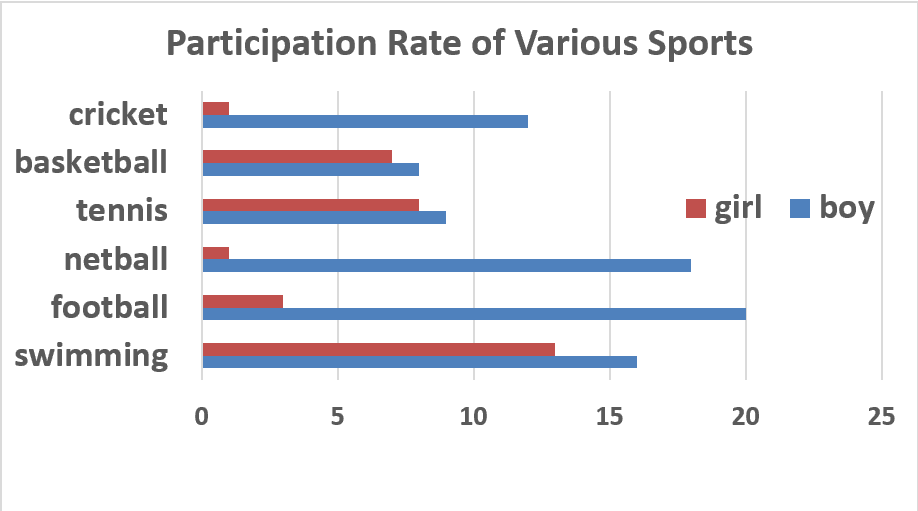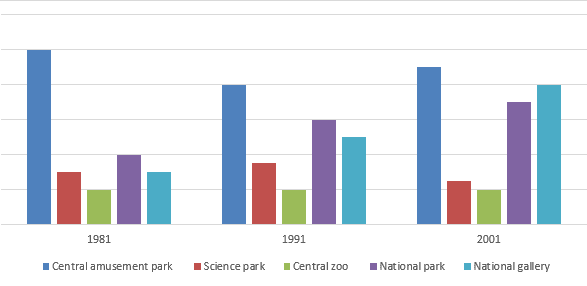在GRE写作中,根据文章素材提炼作文观点的能力对大家的作文得分有很大影响。下面小编就和大家分享GRE写作2个观点类常见错误实例讲解,希望能够帮助到大家,来欣赏一下吧。
GRE写作2个观点类常见错误实例讲解
GRE写作观点类常见错误介绍
GRE写作在提炼观点时出问题的情况其实很常见,其中最主要的错误有两种,一种是根据素材提炼出的观点论点过于宽泛,根本没有体现出题目的特色,而只是给出了一个很大很空泛的观点。另外一种则是论点过于狭窄,也就是太过针对题材本身而没有办法引申出更多深层次的思考。这两种错误看似互相矛盾,但对于缺乏GRE作文写作经验的考生来说,无论出现那种错误都需要引起警惕,否则作文成绩将很难有所提升。
1. 观点太空太宽
在各类教导写作的材料中,大家应该时常会发现关于强调GRE写作论点一定要写得具体,越细越好的指导建议。而考生经常出现的问题就是会出现一些很宽泛的论点句,以至于在较短的篇幅里并不能充分展开,甚至有时候会造成观点重叠。
比如去年2月份的GRE考试中有一篇作文,题目要求探讨关于移动电话对于现代人生活的影响。假如考生提炼出的观点是“Mobile phones have changed our life greatly. ”这句只是说手机很大程度上改变了人们的生活,但是并未点明从哪些方面上带来了改变,因此把这个观点具化一下:“Mobile phones can serve as a connection to the Internet, which can be extremely convenient for obtaining information wherever you may be.”这样一来大家既有具体内容可写,也可以避免观点过于宽泛大而无当的情况。
而同样是在去年2月份,还有一篇作文的题目则讨论了关于广告泛滥对于社会舆论造成的干扰。如果考生只是简单写“Advertising has bad effects on all of society. ”广告有不良影响显然是不够的。我们需要写出具体的方面,比如“Advertisements which exaggerate the function of the products may mislead the consumers.”这样具体的观点才是GRE考官真正希望看到的内容,言之有物也需要从实际出发。
2. 观点太细太窄
与论点过于宽泛相对的,则是一些考生把论点定得太过狭窄,自己把自己逼近了死胡同以至于没有展开的空间甚至没有进一步支持的必要。这类句子与其说是观点,倒不如说是事实的陈述或者只是举了个例子而已。
去年4月GRE作文中曾出现过这样一道题目,讲的是某个地方当地人开展旅游业的看法。有的考生直接把观点写成“There are more local residents engaged in tourism industry. ”这其实并非观点,只是陈述了一个事实就是在当地越来越多人开始从事旅游业,可改为:“Tourism brings huge economic benefits to local residents.”就比较容易展开了。
而今年1月份的GRE作文中也有一道讨论不可再生燃料如何持续利用的题目,如果考生写出“The consumption of fossil fuels increase in recent years. ”这样一句看似结论的话既缺乏数据支持也毫无说服力可言,等于是自己把话说死了,后续要怎么展开?正确写法是给出论述重点,假设原因,比如“The consumption of fossil fuels increasing in recent years results from two factors.”之后就会好写很多。
GRE作文范文:新创意
Truly innovative ideas do not arise from groups of people, but from individuals.When groups try to be creative, the members force each other to compromise and, as a result, creative ideas tend to be weakened and made more conventional. Most original ideas arise from individuals working alone.
GRE作文范文参考:
I agree with the speaker on that truly innovative ideas arise from individuals.Nevertheless, it is unfair to claim unilaterally that the groups tend to weaken creative ideas without thinking of their positive effects on the ideas; it is equally important for groups to examine, modify, or even reject the ideas.
First of all, truly innovative ideas are destined to arise from individuals in that inter-personal thinking process is so far impossible. This is to say, when we sit still and have a cluster of phenomena, theories, statistics and so forth of a certain issue in our mind, we are thinking it over yet with no assistance at all. After all it is impossible for one to intrude into other's mind. Following this principle, innovative ideas spark off during the process of meditation, and they are the produced by one's own effort. It is equally possible, however, for people to be inspired by each other, yet this is by no means assistance in thinking. Clues, hints, inspirations are to remind people of things ignored or taken for granted, but have nothing to do with the process of thinking, that is, to sort out the whole vision and draw conclusion. In one word, innovative ideas arise from meditation, which is solely limited within one body, one brain. Therefore innovative ideas are always the product of individual's work.
Nevertheless, it does not suggest that innovative ideas then have nothing to do with group work, and actually it is just the opposite. When a novel thought is brought up, it is of great importance to fully evaluate its validity, feasibility, and consequences if carried out. This point need no further illustration if we think of a father who resolutely stops his 6-year-old son from playing matches. The kid might have intended to try something new, driven by an innovative idea, yet the whole house might have caught fire also since the boy is incapable of dealing with accidents. This is the same case in academic fields. In a chemistry lab for example, a novel route design of synthesizing a new compound is never carried out without further evaluation. Practical conditions such as equipments, reagents, and economic efficiency, namely yield per cost, are always taken into consideration and sometimes restrict the application of those ideas.
This is to say, innovation is usually good but not always practicable. This claim is fully demonstrated in the political field. Governors of all levels must take holistic views of the situation and make balanced decision in order to avoid mistakes; innovative ideas alone cannot justify their practicability and goodwill to others. For instance, when we look back, the development of plastic industry has resulted in great loss in the global ecosystem. Thus we see the disastrous consequences of carrying out such innovative yet premature ideas.
Hence, it is necessary for the groups to assess, remedy, and conclude the value and use of innovative ideas. All innovative ideas should be brought to discussions. With the clash of skeptical attitude of others to the advocating behavior of the thinker, fallacies made in a haste can be easily found and eliminated, which rectifies, sometimes supplements the idea. I don't agree with the speaker on his/her judgment of group work as compromising, weakening and conventionalizing innovation. Group work promotes those justified and useful innovative ideas and rejects those invalid, sometimes dangerous ones, as we see the case between father and son, in a chemistry lab, in all nations around the world. Only after the group censorship can the innovative ideas be carried out and benefit people, and this is the time when its innovativeness is fully appreciated.
In conclusion, I concede that most original ideas arise from individuals, yet I believe the group effort on these ideas should never be downplayed. It is the group that judge,reject or develop these ideas; this process is equally important with the innovative thinking.
GRE作文范文:成功
Success, whether academic or professional, involves an ability to survive in a new environment and, eventually, to change it.
GRE作文范文参考:
Many wonder the intrinsic impact of industrial revolution over the last century. Is it a blessing or a curse? Ever since the invention of steam engine, mass production enabled factories to make out products in a madly efficient manner, while machines also supplanted innumerous traditionally skilled artisan, forcing them out of work. Gone are the days when they boasted of their craftsmanship that they assumed to be able support their family all their life. Consumers became more aspiring to novel design instead of durability as goods were made to be discarded.
Hundreds years later, with the first installation of integrated circuit on the chip, another profound turnover took place. Now the computer pervades our life so much that one may find himself half illiterate in absence of input skill. This time, thousands of jobs were created in Silicon Valley, transforming some of the few into billionaire over one night. Nevertheless, the original inventor might not expect that the ensuing slow down and thus recession in IT sector would approach so soon in less than 10 years, which is obviously less than a presumable 15 years time normal for a periodical change.Positive or negative, one mark that characterizes the technological bombardment indicates a constant fact: changes exist ubiquitously and operating at an ever-increasing tempo; those who fail to catch up with the torrent of change would ineluctably engulfed by billows, floating no where and eventually dissolve as negligible bubbles.
Favors as well as opportunities goes to who adapt to the contemporary trend. Fully recognizing this axiom, long before the scientists announced accomplishment of sketches of human genes or earlier successful cloning of Doris, candidates preparing for university admission have smelt the sense. Today, in the U.S., biology and its branch disciplines become the first choice for top students of senior high, determining that this subject, foretold as the third wave in technology, could bring them brilliant future as “Bill Gates” dreamt the same in the previous wave.
In addition to academic realm, respect would be paid to people who though deprived of their past secure professions, choose not to be a loser in the whimsical society. Like the artisans who lost jobs, a vast number of skilled laborer in China’s city of Wengzhou have undergone darkness and depression in those old days. However, after years of endeavor and refinement, they prove their value again. By accurately posit the economic trend and market demand, they play an active role in almost all economic sectors, garments, catering and lodging, hi-tech industry, you name it.
While ability honed in surviving the fickleness of the world makes the path through success shorter, it is essential for the more ambitious to acquire the pith of reformist and lead the trend. In this way, it could help him distinguish from the mediocracy and platitude. This is absolutely not an easy task. Inborn insight and foresight are needed to tell uncommon out of the commonplace; extraordinary perseverance and encouragement is a must to face the coming challenges against his iconoclasm. Very few people crowned with triumph possess this quality, whether the Nobel Prize winner or those who makes coverage on the Times.
In sum, as shown in the course of history, success, whether academic or professional,involves an ability to surviving in a new environment and---, eventually, ---to change it.Now some elite persons have again forecast that another social change is impending.Are you ready for that?
GRE写作2个观点类常见错误讲解相关文章:
★ GRE写作:写作论据的技巧
★GRE写作:高分技巧
★GRE写作:怎样缓解紧张
★GRE写作:写作论据的技巧
★GRE写作:高分冲刺





